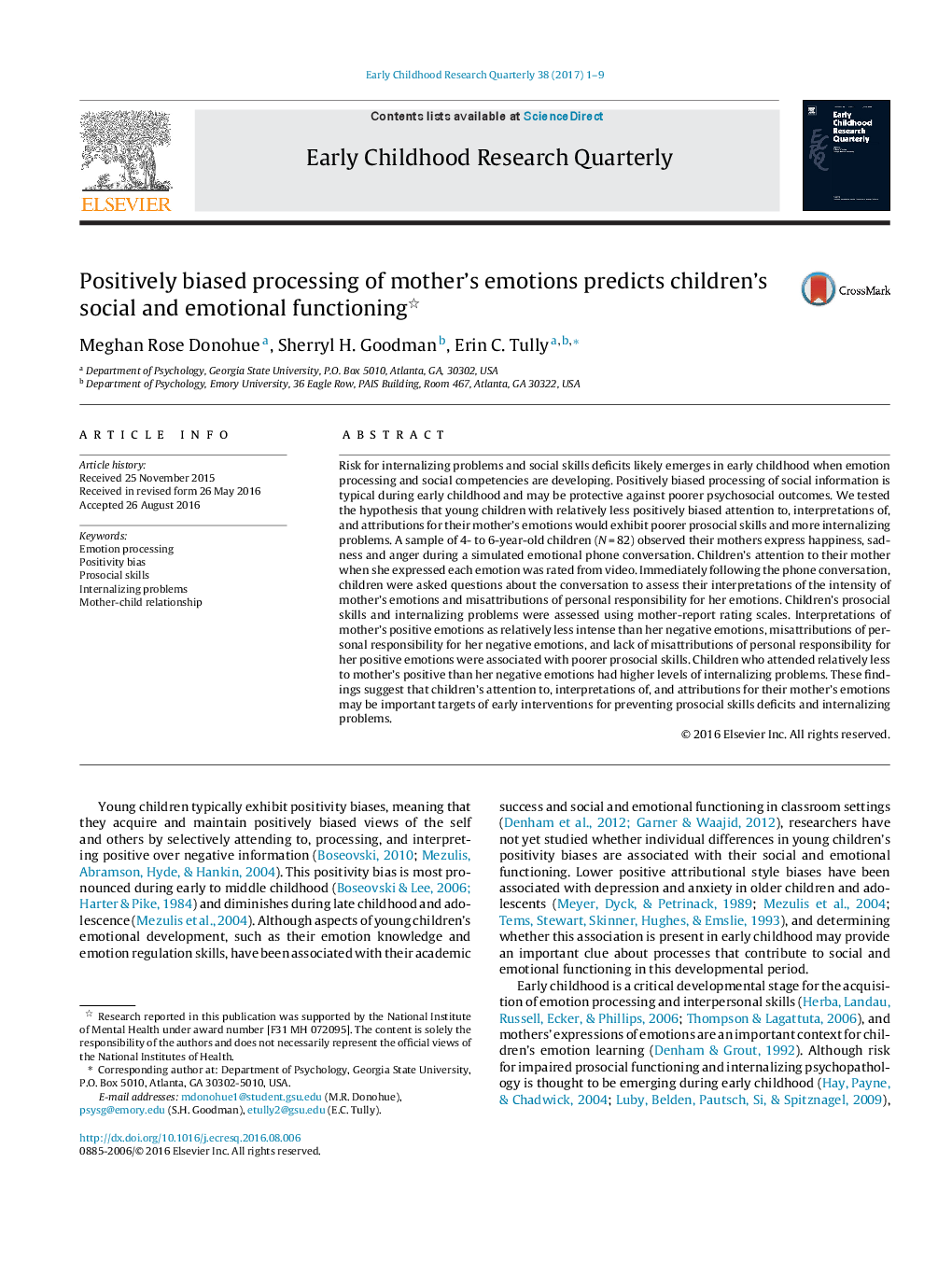ترجمه فارسی عنوان مقاله
پردازش احساسات غلط از احساسات مادر، عملکرد اجتماعی و عاطفی کودکان را پیش بینی می کند
عنوان انگلیسی
Positively biased processing of mother's emotions predicts children's social and emotional functioning
| کد مقاله | سال انتشار | تعداد صفحات مقاله انگلیسی |
|---|---|---|
| 135539 | 2017 | 9 صفحه PDF |
منبع

Publisher : Elsevier - Science Direct (الزویر - ساینس دایرکت)
Journal : Early Childhood Research Quarterly, Volume 38, 1st Quarter 2017, Pages 1-9
ترجمه کلمات کلیدی
پردازش احساسات، تعصب مثبت، مهارت های حرفه ای، مشکلات داخلی، رابطه مادر و فرزند،
کلمات کلیدی انگلیسی
Emotion processing; Positivity bias; Prosocial skills; Internalizing problems; Mother-child relationship;

